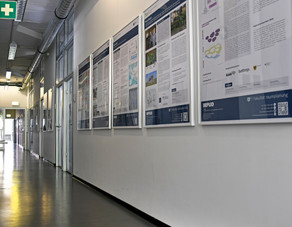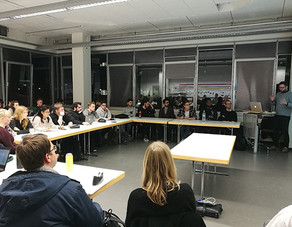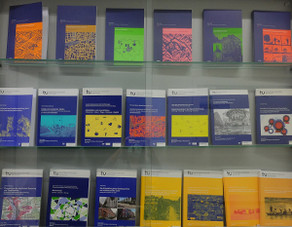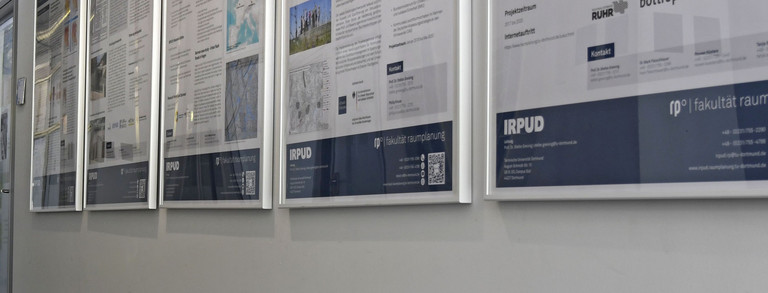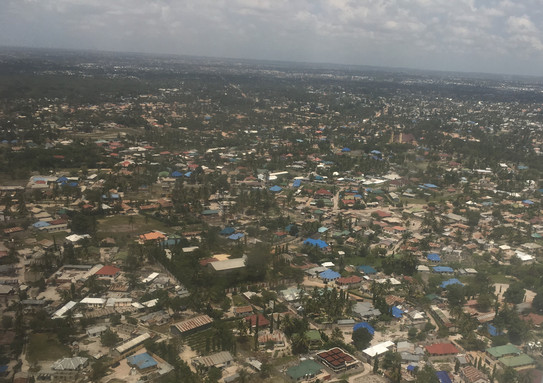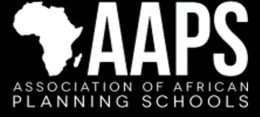5th AAPS Conference
- General

Call for Conference Papers
The Institute of Spatial Planning (IRPUD) at TU Dortmund University in Germany, the Institute of Human Settlement Studies and the School of Spatial Planning and Social Sciences at Ardhi University in Tanzania cordially invite you to take part in the call for conference papers for the fifth AAPS (Association of African Planning Schools) conference.
In the last decades, many cities in Sub-Saharan Africa are continuing to experience rapid economic and demographic growth. These positive developments, however, are not matched with the development of institutional capacity, thus cities are increasingly unable to effectively deal with the challenges of rapid urbanisation. In addition, factors related to climate change pose additional stress on the already exacerbated management crisis of cities. Consequently, there is a need to search for innovative ideas in mobilising latent resources and alternative approaches to better govern and plan African cities. In particular, dealing with urban risks and increasing vulnerability toward climate related hazards require use of locally produced knowledge and contextualised urban planning approaches.
GOPLAREA, a research-cum-training programme at TU Dortmund University of Dortmund in Germany and Ardhi University in Tanzania, has organised several workshops with urban researchers and practitioners, in which capacity gaps in planning practice, flood resilience, capacity building and governance challenges for mainstreaming innovative concepts were discussed. The results of the discussions highlighted the need to understand and learn from dynamics of socio-spatial systems and networks, which transcend the formal-informal divisions of cities of Sub-Saharan Africa. In addition, the discussions brought to the fore the need for rethinking concepts such as urban resilience, urban governance and planning from local perspective. Ultimately, these questions open up the debate on how to reform planning education so that a new generation of planners will be better equipped to pro-actively deal with the actual and future challenges. Consequently, the conference invites papers looking at the following topics:
Planning education and practice in Africa have so far largely been based on applications of urban and planning theories derived from Euro-American urbanism. This led to the conclusion that urban planning in Africa as an extension of colonial ideology and out of touch with socio-spatial, economic and institutional reality. Scholars, such as MacFarlane (2008), Watson (2009, 2014) and Connell (2013), therefore, call for decolonising planning theories and redirecting the focus of planning research and theorisation toward the Global South. The conference thus welcomes views on the Global South as an active participant in creatively shaping theoretical debates, be it through the appropriation of circulating planning theories or through the creation of new ones rather than as a passive recipient of mainstream planning models and ideals. In line with this, this track has two interrelated aims: 1) to debate place-specific appropriations of globally circulating planning theories and concepts such as participatory and/or collaborative planning, garden city, networked city, resilience, sustainability, informality; 2) to discuss planning theories and models that emerge from planning in African cities or cities of the South. We hope that these discussions will help us to redefine and reconceptualise the meaning of ‘urban’ and ‘urbanisation’ more broadly from various local perspectives. Hence, the track calls for papers, which focus on:
- Place specific appropriation and adaptation of circulating plannings ideals and models by actors and agents in urban planning and development as well as in academia
- The development of urban and planning theories and models from the perspective of the Global South and in particular African urbanisms.
The effect of climate change is already visible in African cities. Flood and water scarcity are increasing and are causing loss of life, destruction of infrastructures and jeopardizing livelihood. Prospects for the future are bleak and require the planning profession to rethink how to deal with such changes and their impacts. The track hence opens discussions on the role of urban planning education in dealing with such drastic changes in urban environment. Consequently, the conference calls for papers which discuss how far the curriculum of urban planning education evolved with increasing urban risk, how far concepts such as sustainable development, urban resilience and risk adaptation have influenced teaching, training and the focus of research in urban development and planning as promoted by UN Habitat’s initiative “Planners for Climate Action”.
Challenges posed by rapid urbanisation and climate change related risks have already exacerbated the weak institutional and financial situation of cities in Africa. On the other hand, considerable resources have been available in co-production networks and initiatives in informal and semi-formal systems. These resources are used to overcome shortages or inaccessibility of urban services and to mitigate and adapt to disaster related risks. Here, dealing with critical infrastructures and their systemic criticality due to cascading effects in case of service disruptions comes into play. This track, hence, aims to discuss the nature of such resources and their potentials and constraints to develop participatory and multi-governance approaches for urban resilience. Therefore, the track opens discussions for papers dealing with resource mobilisation at grassroots level and coordination of efforts at different level of, in particular, land governance and infrastructure planning and provision, as well as looking into factors for building urban resilience at local level.
Adaptation and risk management is one of the key planning areas in urban Africa, where self-help, private and public initiatives work together. Yet, in many cases, aims of adaptation and risk management are conflicting with livelihood related issues and access to affordable housing. Consideration of such socio-economic factors will be essential for successfully building urban resilience and doing so in an inclusive manner. Consequently, the track will bring forth the issue of pro-livelihood integrated actions in adaptation and risk management. The track calls for case studies which highlight the complex relationship between job creation and risk management as well as theoretical insights and approaches dealing with informal settlements in hazard prone areas along the different spectrums between on-side upgrading and off-side resettlement poles.
- Brochure and Program with ZOOM-Links PDF (7 MB)



